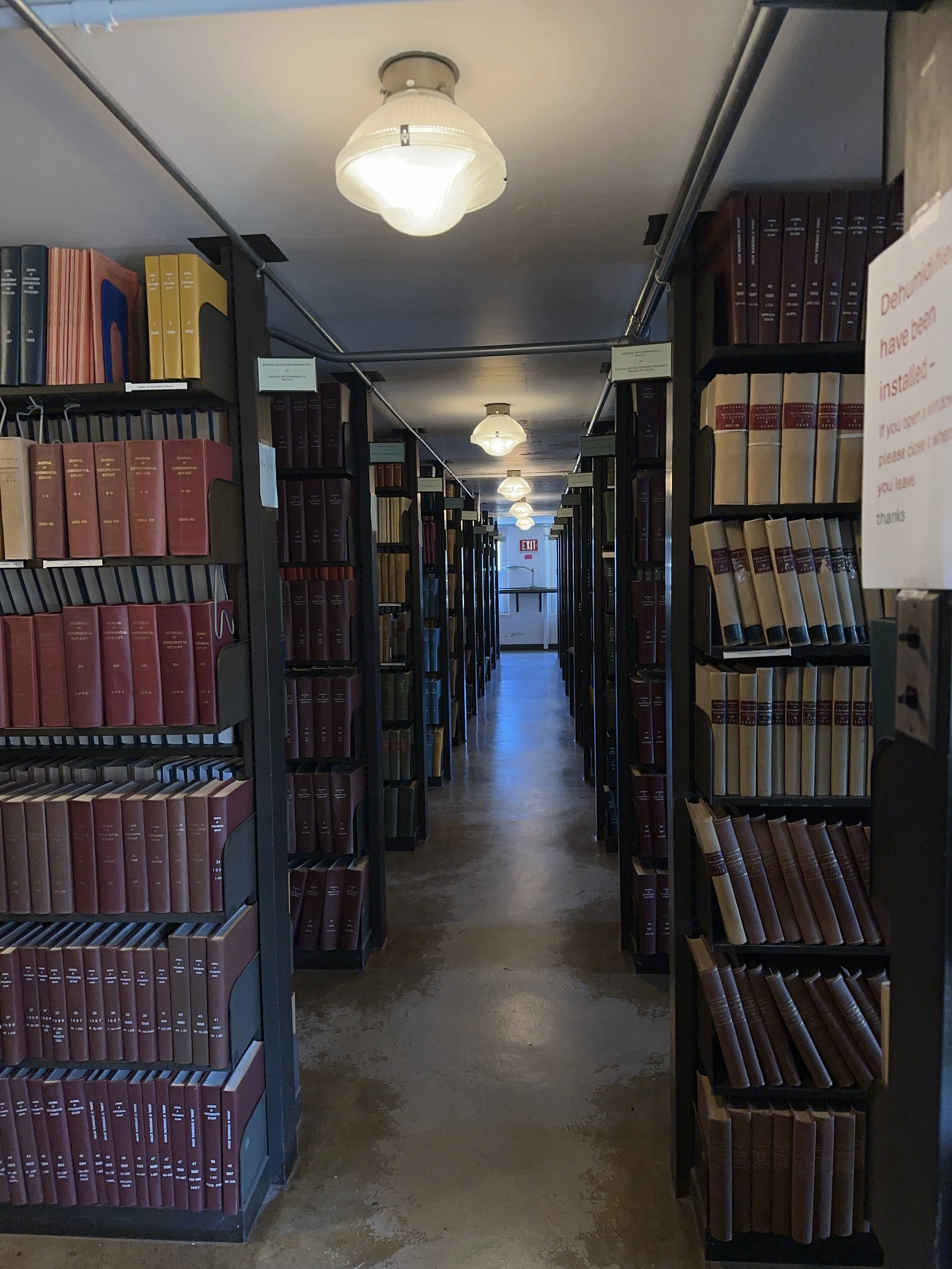MY FAVORITE STORY OF MBL
Cindy Maddera
The Marine Biology Lab (MBL) in Woods Hole shares a library with the Woods Hole Oceanographic Institute (WHOI) and the library space is a bibliophile’s dream. It’s old and dark. It smells of books and sea. There are places in the floor that feels soft and not safe to stand on. This is my favorite place at MBL. The lobby of the library holds a tiny museum with glass cases of early microscopes and placards of information about early scientists on the wall. One case contains the Nobel Prize of Thomas Hunt Morgan’s. I have a picture of me somewhere, holding it and looking like I’m trying to eat it.
Of all the stories hanging on the walls of this lobby, it is the story of Katsuma Dan. Katsuma Dan was a researcher from Japan who studied at MBL from 1931-1934 and then later in 1936, when he met his future wife, Jean M. Clark. They both used sea urchins to study the mechanisms of cell division. While they moved to Japan to continue their careers, they often returned to MBL as summer researchers. This is not the first story I have heard of researchers meeting their life partners while studying at MBL and it is not Katsuma Dan’s time at MBL that I love. It’s actually the story of him working at the Misaki Marine Biological Station during World War II. He talked about the war in letters to friends in US, saying “ducking under bombs was not so bad. Rather it was a great excitement. Hide and seek at the expense of your life can’t help being exciting. There was, however, an awful side to it.”
The Japanese Navy took over the Misaki Marine Station near the end of the war, converting it into a base for miniature submarines. Dan and his students set up a make-shift lab space nearby and continued working. At the end of the war, Dan posted a handwritten note to advancing American forces on the door of Misaki:
This is a a marine biological station with her history of over sixty years. If you are from the Eastern Coast, some of you might Woods Hole or Mt Desert or Tortugas. If you are from the West Coast, you may know Pacific Grove or Puget Sound Biological Station. This place is a place lone of these. Take care of this place and protect the possibility for the continuation of our peaceful research. You can destroy the weapons and the war instruments. But save the civil equipments for Japanese students. When you are through with your job here notify to the University and let us come back to our scientific home.
The last one to go - Katsuma Dan
That handwritten note hangs in the lobby of the MBL library and it is one of the first things I pointed out to Chad and Jess during our tour of the library. I waited for the two of them to read over the words and when Chad had finished reading the note, he turned to me with tears in is eyes and said “Yeah…okay. This goes on the list of what made Chad cry today.”
I feel like there is such a remoteness to being a research scientist and I often struggle to define ‘research scientist’. It is such an umbrella term, more like a circus tent of a label, to describe all the various kinds of things scientists study. It is also a career that sounds elitist in its intellectualism. But you don’t have to be the smartest person in the room to be a research scientist. You just have to be curious and maybe a little bit fearless in asking questions. The story of Katsuma Dan shows us the very human and real sides of a scientist. We love. We are funny and goofy. And at the end of the day, we are all very passionate about protecting our spaces that allow us to ask questions and be curious and to be silly and goofy.
Dan’s note says it all. We have no use for the weapons and instruments of war. Leave us the tools for discovering the answers to our questions. Protect these spaces because places like MBL and Misaki are homes for us. Places like MBL need federal grant money to keep the lights on. Meanwhile, the current administration feels that tax dollars are better spent on acts of cruelty rather than spending it on scientific research, affordable health care and food assistance programs. Dan’s note to approaching American forces transcends time because, as scientists, all we can ask for under this administration is to “protect the possibility for the continuation of our peaceful research”.
Protect the possibility.
I don’t think that’s a very big ask.
